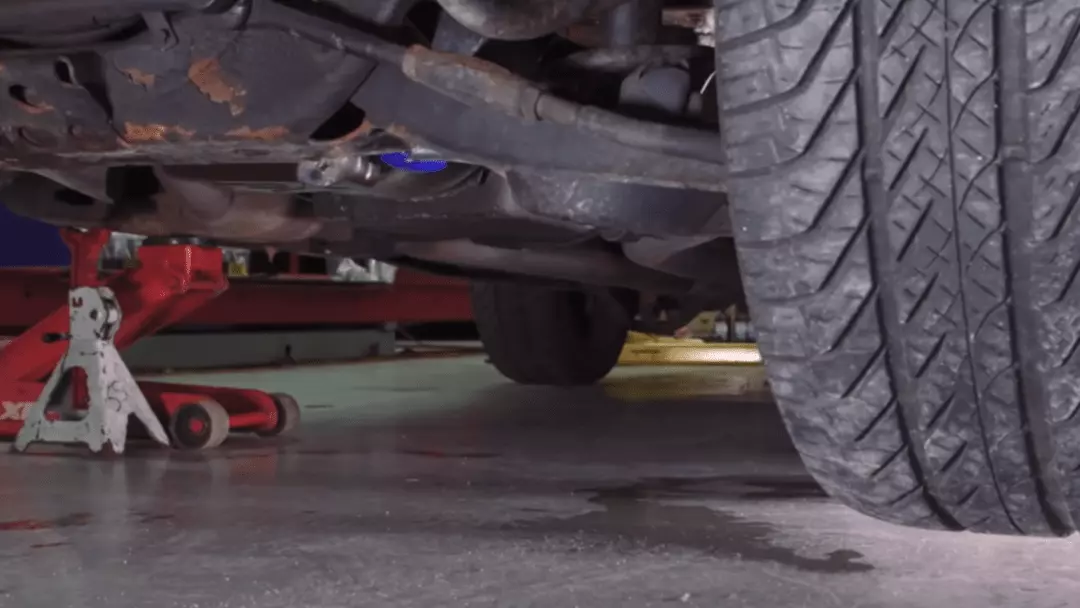You notice the low engine oil signal after a successful journey with your car. Instead of reducing friction within your engine, the car engine releases oil from the leakage. But why is my car leaking oil? What could be the reason for the large oil leakage in my car?
Typically, degraded oil seals or engine gaskets, overtightened gaskets, overfilled oil tanks, oil filters, drain plugs, pans, or other damaged parts can cause oil leaks and engine overheating. Therefore, identifying leaked spots and symptoms and figuring out the causes behind oil leaks will ensure a perfect way to solve the problem.
Though it’s normal to see a few drops of oil, a small leak can lead to a large leak and ultimately make you spend a lot of money fixing the engine and leakages. To save money, you must go through the next section of this article. Let’s see how we should stop engine oil leaks.
Contents
- 1 At What Mileage Do Cars Start Leaking Oil?
- 2 Why Is My Car Leaking Oil – Common Reason and Possible Spots
- 2.1 Possible Spots of Oil Leakage
- 2.2 12 Oil Leak Symptoms
- 2.3 Reasons For Oil Leakage
- 2.4 Deteriorated Oil Gasket
- 2.5 Leaky Seals
- 2.6 Blocked PCV Valve
- 2.7 Crankcase Vent
- 2.8 Accidental Leakages
- 2.9 Excessive Oil Changes
- 2.10 Engine Block Or Cylinder Head Fractures
- 2.11 Improper Installation
- 2.12 Overheated Car
- 2.13 Punctured
- 2.14 Problem With Oil Sending Unit
- 2.15 Damaged Dipstick Tube or Inlet
- 2.16 Broken Oil Pan
- 2.17 Loose Drain Plug Or Filler Cap
- 2.18 Lack Of Maintenance
- 2.19 Driving Car In Serious Condition
- 3 Why Is My Car Leaking Oil After An Oil Change?
- 4 Is It OK to Drive A Car With An Oil Leak?
- 5 How To Fix An Engine Oil Leak – 10 Advice to Follow
- 6 What Is The Cost To Repair An Engine Oil Leak?
- 7 FAQ
- 8 Final Words
At What Mileage Do Cars Start Leaking Oil?
How well you maintain the car engine will affect its mileage. In general, the average distance is around 10,000 to 30,000 miles. Additionally, after 100k miles, the piston oil rings or valve seals may get complicated and eventually lose their ability to retain oil.
Why Is My Car Leaking Oil – Common Reason and Possible Spots
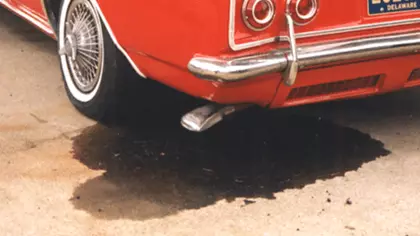
When the car owner asks, “Is it normal for an old car to leak oil?” Of course, it’s a normal incident since an old used car will possibly fail to perform. Unfortunately, the new vehicle is releasing oil from the engine compartment!
But why does it happen? And how should we fix the oil leak under the car? Behind every solution, there is a struggle to understand the symptoms and the causes after detecting the spots of leakage. Therefore, we would like to present a complete knowledge of car leaking oil and how we fix the leakages.
Possible Spots of Oil Leakage
Do you know what’s the trigger point behind the leakage? We have found some common parts that cause the engine oil level to decrease. Look at the spots that let the oil out from the engine.
- Oil filter, pan, pump, gasket, or rocker cover gasket
- Drain plug
- Seals
- Poor connected or installed parts
- A cylinder head or engine block with cracks
- Inadequate oil-sending section
- Inlet or dipstick tube damage.
12 Oil Leak Symptoms
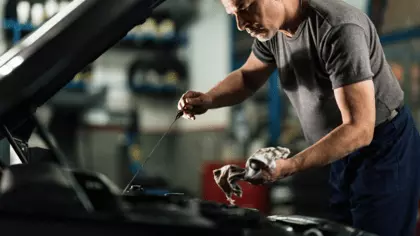
Before the lubricant starts to leak, the car will show some hints. A user with a Honda CRV has noticed the oil leaks, but the reason is unidentifiable! So, we would like to tell you all the common symptoms you’ll see on your car when it’s leaking oil.
- The dashboard light is flashing.
- Overheated engine
- The engine makes a ticking sound.
- A contaminated stain on the road
- Burning odor
- Exhaust engine blue smoke
- Black or dark brown puddles under the car
- The valve gasket deteriorates and stops sealing
- Too much or overfilled engine oil
- Low oil level
- High oil pressure
- Difficulties while shifting the transmission into gear.
RELATED: Best exhaust headers for Chevy 350
Reasons For Oil Leakage
First of all, you have to understand the reasons behind the leaks. If you read below, you’ll understand all the possible causes that trigger the engine compartment to leak oil.
Deteriorated Oil Gasket
The estimated lifespan of a valve cover gasket is 20 to 50 thousand kilometers. However, the excessive heat can cause oil leaks or a burning smell. Sudden temperature fluctuations, such as changes from winter to summer, ruin the gasket.
Therefore, check for dirt and grime buildup at the top of your engine and small oil puddles near the spark plug, plus cylinder head dents. Most likely, the leaks will happen for four reasons: –
- Valve Cover Gasket
- Cylinder head gasket
- Timing Cover Cover
- Pan Gasket.
Additionally, overtightening the filter gasket might result in gasket leaks or filter leaks. The oil gaskets in your car are located at the bottom, so they will be damaged by road debris.
Leaky Seals
Lack of maintenance is the main reason behind seal and gasket failure, particularly oil leaks. You will notice acids are generated in the oil after the contamination. Such acids usually damage and deteriorate seals and gaskets to cause oil leaks.
Typically, a crankshaft or camshaft seal possibly leaks. Car leaks can happen when the seal becomes dry, cracked, or damaged. The underneath engine will have oil from the small leaks, while the front and rear of the engine may have oil drops from larger leaks.
Camshaft seal leakages can happen in the engine with the timing belt. Such leakages cause oil to collect below your car causing the engine to smoke. It’s a problematic part, so it has to be diagnosed by professionals to be repaired.
Blocked PCV Valve
The breakdown of engine O-rings, gaskets, or seals happens due to increased internal engine stress. Therefore, please keep your eyes on it!
When you have a vehicle, regular maintenance comes first. In particular, you must change the engine’s oil after a particular amount of time.
Crankcase Vent
We frequently use the valve and hose utilized for the ventilation of the crankcase. The engine may encounter excessive pressure when the ventilation becomes blocked. Ultimately, the result is leaking since the oil tried to escape the engine.
Accidental Leakages
Accidental oil leaks are another common thing in vehicles. You must ensure you don’t leak engine oil while filling the reservoir. Also, we should check the dipstick reading to ensure the engine leaks.
Excessive Oil Changes
Oil changes are good, but frequently changing the oil can cause engine trouble, like leaks due to overfilled oil. So, you should know when to change the oil as well as you have to ensure the ideal quantity of oil.
Engine Block Or Cylinder Head Fractures
If the engine block or cylinder head is fractured, the oil will flow from the engine into the cooling system. The coolant in the coolant system freezes since there is not enough of it. Therefore, changing the entire engine is the best solution!
Isn’t this a big problem that your engine is dead? Yes, it is! Even the HVAC system, commonly known as the heating, ventilation, and AC system with your automobile’s radiator, might be distracted by leaks. In addition to the leakages, the oil will escape from the exhaust system, which is oil spilling from the shock absorber.
Related shock: Best shocks for GMC Sierra 1500 4×4
Improper Installation
The initial step is keeping the engine oil secure by doing the proper installation. All the components should be installed by a professional hand.
A small leak or a major spill might happen for tightening mismatch or over-torquing. The same thing is true when the surfaces with old gasket residue are not scraped off before the new installation.
Overheated Car
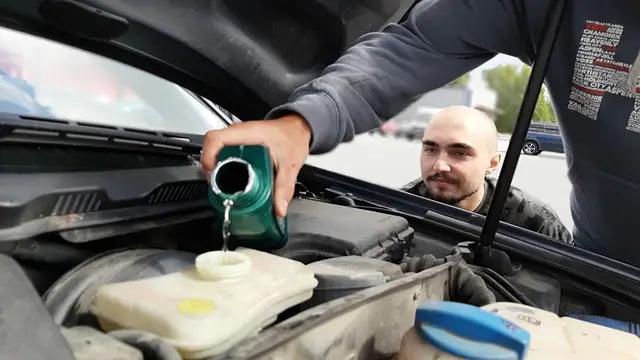
A few months ago, a user had the car serviced. But suddenly, he noticed the car leaking oil and overheating.
The anti-freeze coolant leak can be a big reason behind overheated engines. Without enough engine oil, the pistons might rub against other engine components and eventually cause the car engine to overheat.
Punctured
If you never faced an oil leaking problem, you should know that having punctures or holes can also let the oil out. The oil pan may leak due to roadside dirt or punctures from hard surfaces. The pan’s gasket, which seals the pan, commonly leads to leaks, wear, and tear. Additionally, the extremity of cold and heat can trigger the engine compartment.
Problem With Oil Sending Unit
The oil pressure unit can also likely leak oil from the vehicle if you detect the oil light flashing. Having their direct link to the engine’s oil pressure management, oil-sending units frequently result in slow leaks or sometimes massive leaks. It’s also possible that the malfunctioning sending unit will report a wrong output about low oil pressure.
Damaged Dipstick Tube or Inlet
Car owners ask, “Can you drive with a broken oil dipstick tube?” Well, yes, you can drive for a short time.
Unless the engine is having trouble with rear compression, the dipstick won’t cause oil loss. Otherwise, a loose dipstick will contaminate the engine oil with dirt. The dipstick tube is used for checking the oil level.
There is a likelihood that the damaged section of the dipstick will get trapped in a car’s timing chain or other rotating components, particularly when it’s not removed yet. Therefore, telescopic magnet dipstick removal equipment can fix any fragments in the dipstick.
Broken Oil Pan
A few months ago, a car owner faced oil leakage, but it was just 120 miles away. What could be the reason for the change in oil consumption level? Our suspension is because the oil pan is damaged, which caused the engine oil to leak.
Your vehicle oil pan is commonly covered in oil from any other leaky engine gasket or seal. So, it may leak if it hits a curb or road debris has punctured the oil pan.
The engine block or oil pan is sealed together by the gasket. The common signs are noticeable puddles under the automobile, insufficient oil, or an overheated engine. However, you have to check the oil pan and make sure the pan has no loose fitting.
Loose Drain Plug Or Filler Cap
Here comes the oil tank’s filler cap loosening or cracks issue. The filler cap is a location where you can add oil.
An improperly fitted drain plug or filler cap is the reason behind oil leaks if you find oil puddles gathering below the car or around your engine. Therefore, you have to replace or repair the components. But usually, we work to loosen or tighten it accordingly. Remember that the drain plus can be reachable from the inside and is located at the bottom of the oil reservoir.
Lack Of Maintenance
Taking proper care of the vehicle is a crucial part. You must especially change the engine’s oil after a specific time.
However, you’ll probably encounter oil leaks for neglecting the step. Do you know why it happens? It happens when the engine oil becomes acidic as contaminants from dampness and combustion wastes become more common. Therefore, regular oil changes are unquestionably required.
Driving Car In Serious Condition
The last reason behind oil leaking is driving in a type of area that might greatly impact your car. Driving in salinized areas, such as the ocean’s coast, can result in more leakages than driving far inland.
Also, the engine’s metal parts can corrode more rapidly than usual due to the saline conditions. Similarly, you won’t experience any issues if you visit the beach during the summertime.
However, if you can live near the ocean, regularly travel along the coastal roads or park your vehicle next to the Seaside. Keeping the car protected from any catastrophic low-oil issue might be beneficial.
Why Is My Car Leaking Oil After An Oil Change?
After changing the oil recently, a small amount of oil will flow from the engine, and it’s normal. Gaskets, oil seals, and faulty connections with deterioration can cause leaks after the new oil change.
If the leak is small, some oil was left after cleaning all the components below your drain plug. The oil may be pushed out of the housing and passed down to your vehicle’s lowest position whenever the O-ring is damaged or absent.
Therefore, OEM dealers can utilize the best components and staff familiar with your car model. It will ensure the secured engine compartments are without leaks, even after the oil change.
Is It OK to Drive A Car With An Oil Leak?
Driving with an oil leak causes engine damage and wear and tear. As a result, you should refrain from driving if the engine is dripping oil.
Technically, you can drive a short distance of around 10 miles. An oil leak under the car is a common issue, and it should be fixed ASAP. But if it’s about transmission leakage, drive for a long time.
RELATED: How to reset Transmission Control Module Chevy Silverado
How To Fix An Engine Oil Leak – 10 Advice to Follow
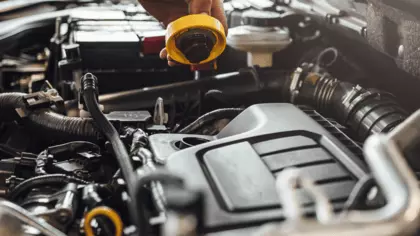
So, we have shared the causes, symptoms, and spots of oil leaks. It’s time to share some advice that we should follow to keep the car efficient.
- Keep track of the estimated level of oil your engine may be losing.
- Check the oil after the engine has been off for about 30 minutes or half an hour to offer the oil time to return to the vehicle oil pan.
- The dipstick can be removed, cleaned with a fresh rag, and reinserted with your engine off.
- Take immediate action whenever you notice overfilled oil or low oil levels.
- You can avoid using poor-quality oil and ensure the oil is correctly poured into the container. Most manufacturers advise changing the oil filter every six months or every 5 to 10 thousand kilometers.
- Continually checking or properly maintaining the car or often driving it to the repair shop can help to know about any leaks.
- Use the right oil according to the manufacturer’s manual instructions.
- A bad rubber hose, oil cap, and seal can be soft or conditioned using the additive to stop the leaks.
- Make sure the drain plug is properly installed.
- However, the best solution is to consult a technician or professional repairer to resolve the oil leaks.
What Is The Cost To Repair An Engine Oil Leak?
Repairing the oil leak will possibly cost around 100 to 2,000 dollar. We noticed that customers repaired leaks by investing between $85 and $155. Only worn-out parts, such as oil seals or gaskets, will need to be replaced by the distributor or technician. So, don’t worry about the cost since we are including a short chart below.
| Parts | Cost |
| Oil cap | $8 to 20 |
| Drain plug gasket | $30 to 50 |
| New oil filter | $30 to 75 |
| Repair gasket damage | $80 to $200 |
| Fixing an oil pan | $100 to $550 |
FAQ
Here comes the most necessary part of any content: frequently asked questions. Hope all the queries and answers will give you a clearer idea about the oil leaking in the car.
1. Where do cars usually leak oil from?
Oil frequently leaks from where your gasket is installed between the cover and cylinder head. It usually happens when the valve cover or oil pan gasket is excessively tightened. Or, perhaps the oil will spill from the filling cap, filter housing, pan, or drain plug.
2. Is a little oil dripping from my vehicle a big deal?
Although minor oil leakage is not a major concern, you should never overlook this. A small amount of oil leaks can be larger, signaling that the seals no longer have the same effect. Also, a small leakage can lead to serious vehicle problems with costly repairs and even kill the engine.
3. Why does a car leak oil from its bottom?
The gasket can no longer effectively seal in the oil because it drops oil and runs out underneath the vehicle. This happens due to gravity if you detect oil leaking from the bottom. However, the oil may leak from the gasket, o-ring, fracture in the oil pan, or loose oil pan plug can make it happen.
4. Why is my car leaking oil when parked?
Usually, the car leaks oil when parked due to 3 major causes: damaged pan, valve cover gasket, or camshaft. Whether an overtightened gasket leaks the oil, faulty filter installation, or overflowing oil might cause leakage.
Final Words
So, why is my car leaking oil? Match the symptoms above when you notice automobile issues like poor gaskets, seals, drain plugs, attachments, overtightened or overfilled oil, pan filters, and damaged parts. Checking the symptoms will help you to fix the car oil leaks.
The advice we shared, particularly the maintenance and oil changing, will be the main job for car users who have encountered oil leakages. So, don’t forget to address the oil leak problems immediately and call the professionals to block the leaks for a trouble-free riding experience.

Hello, this is Wesley Shelton, currently working in a car restoration company for over 5 years. Before that, I was a worker at a small car repair shop. As I was a car freak from a young age and worked as a professional for over half a decade, I think I now know pretty much everything about every car and its parts. To establish my name as a professional and help others by sharing my knowledge, I’ve created this website, which I work on whenever I get free time. I hope you’ve enjoyed my informative blog!

